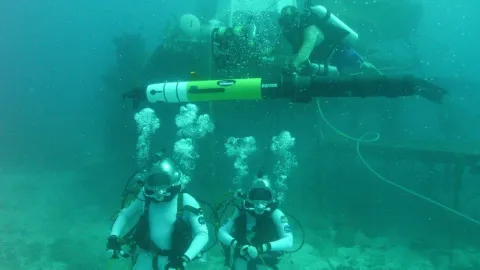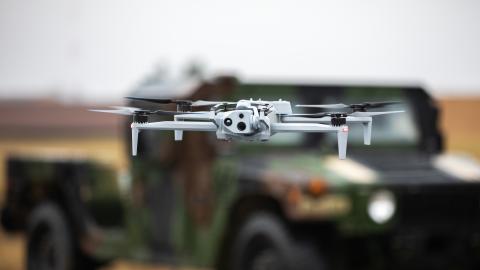This week, Narendra Modi will make history as India’s first Prime Minister to make an official visit to Israel. As the FT reports, he will be putting the Palestinian issue aside to forge closer ties on defense, agriculture, tech, and trade:
Mr Modi’s trip, which begins on Tuesday, puts the seal on an increasingly close relationship, underpinned especially by billions of dollars in arms sales. […]
During the three-day visit, Mr Modi will discuss trade with his Israeli counterpart Benjamin Netanyahu, as well as addressing a crowd of around 4,000 people of Indian origin in Tel Aviv.
But he is not planning to travel to Ramallah to visit Palestinian president Mahmoud Abbas. While Mr Modi hosted Mr Abbas in Delhi last month, this trip will be focused on India’s expanding defence, technological and commercial ties with the Jewish state.
“Mr Modi is de-hyphenating relations,” says PR Kumaraswamy, who teaches on the Middle East at Jawaharlal Nehru University. “Its links with Israel are no longer merely an aspect of its policy towards the Palestinians.”
25 years after establishing formal diplomatic ties, the India-Israel partnership is stepping out of the shadows. In part, theirs is a relationship built on defense dollars: as India makes a mad dash to modernize its military and upgrade its arsenal, Israel has become its third-largest arms supplier, with $599 million worth of weapons sold last year. And if April’s $2 billion arms deal is any indication, that figure will only rise in years to come, as Delhi turns to Israeli expertise on missile defense and cyber technology to boost its own capabilities, particularly along the Pakistani border.
The bilateral economic relationship has been blossoming in other sectors, too. When Modi visits Israel this week, he will bring 15 top executives from Indian firms like Wipro and Reliant to establish a joint CEO forum with Israel. That is a sign of how innovative commercial exchanges are already transforming the relationship. In the agriculture sector, for instance, Israeli water recycling technology is helping India grow food more efficiently; Israel has also established 26 agricultural expertise centers in India to teach local farmers new tricks. In the cyber field, meanwhile, Israel Aerospace Industries is working with local Indian partners on space cooperation and developing high-res radar satellites. All this redounds to India’s benefit; expect more high-profile deals in crucial sectors to be announced during Modi’s trip.
But this is not just a story about a transactional exchange of arms, money, and expertise. It is also about the successful expansion of Israeli diplomacy away from Europe. From the Gulf to Africa to all across Asia, Israeli diplomacy is more active and diversified than ever before.
This is important for many reasons, but fundamentally it reflects a recognition that Israel is not a West European state. Much of Israel’s population consists of refugees from the Arab world, many of whom fled or were driven from their ancestral homes by Arabs enraged and humiliated by Israeli victories in 1949, 1957 and 1967. Others come from parts of Russia that were never part of the West.
Israel’s integration into the non-western world was delayed by Arab hostility. But Arab power is weakening: of the world’s major cultural and economic regions, only sub-Saharan Africa has had less economic and political development since World War Two than the Arab world. As OPEC’s power over world oil prices declines, and as sectarian war and political failure rip the Arab world apart, Israeli tech prowess and close links to the United States make it a valued partner for more and more of the postcolonial world.
Westerners who judge Israeli leaders solely by their willingness to make concessions to the Palestinians have long considered Netanyahu a frustrating figure and a poor strategist. Frustrating he may be, but Israel’s steady progress in reducing its diplomatic isolation while diversifying its exports on his watch is a significant accomplishment. It’s difficult to think of any Western leaders who have done as much to advance their country’s interests. The fact that Netanyahu has done more to build Israeli ties with the third world than Obama managed to achieve for the U.S. is one of the ironies of the modern world.
As one of the world’s tech leaders, as a pioneer in cyberwar defense, as an emerging natural gas exporter, as a leader in desalinization and irrigation tech, and as one of the most accomplished arms producers in a world that is rapidly rearming, Israel is poised for a new era of diplomatic progress.














